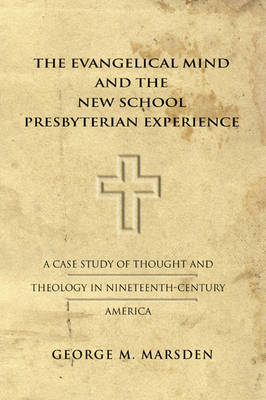
- Afhalen na 1 uur in een winkel met voorraad
- Gratis thuislevering in België vanaf € 30
- Ruim aanbod met 7 miljoen producten
- Afhalen na 1 uur in een winkel met voorraad
- Gratis thuislevering in België vanaf € 30
- Ruim aanbod met 7 miljoen producten
Zoeken
The Evangelical Mind and the New School Presbyterian Experience
A Case Study of Thought and Theology in Nineteenth-Century America
George Marsden
€ 58,95
+ 117 punten
Omschrijving
The passing of reformed theology as a major influence in American life during the nineteenth century was not a spectacular event, and its mourners have been relatively few. Calvinism, when it is mentioned, is still often portrayed as a dark cloud that hovered too long over America, acting as an unhealthy influence on the climate of opinion. Nonetheless, the transition from the theologically oriented and well-formed Calvinism characteristic of much of American Protestantism at the beginning of the nineteenth century to the nontheologically oriented and often poorly informed conservative Protestantism firmly established in middle-class America by the end of the same century remains a remarkable aspect of American intellectual and ecclesiastical history. The twentieth-century attitude, itself a product of this transition, has placed strong emphasis on nineteenth-century Protestant activities - their organizations, their revivals, and their reforms. The mind of American Protestantism in these transitional years deserves at least equal consideration. -from the Introduction
Specificaties
Betrokkenen
- Auteur(s):
- Uitgeverij:
Inhoud
- Aantal bladzijden:
- 292
- Taal:
- Engels
- Reeks:
- Reeksnummer:
- nr. 20
Eigenschappen
- Productcode (EAN):
- 9781592444502
- Verschijningsdatum:
- 23/12/2003
- Uitvoering:
- Paperback
- Formaat:
- Trade paperback (VS)
- Afmetingen:
- 137 mm x 206 mm
- Gewicht:
- 331 g

Alleen bij Standaard Boekhandel
+ 117 punten op je klantenkaart van Standaard Boekhandel
Beoordelingen
We publiceren alleen reviews die voldoen aan de voorwaarden voor reviews. Bekijk onze voorwaarden voor reviews.








